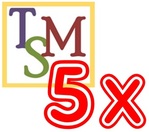Phonics and Early Reading at TSM
|
Phonics is an essential part of learning in the Early Years Foundation Stage and Key Stage One. It provides children with the skills necessary to decode or sight read words. We strive to provide active, engaging lessons through reading and writing games to embed these early reading skills.
Our whole-school, DfE-approved systematic synthetic phonics programme "Twinkl Phonics" has everything needed to make phonics a joy, helping your children to love reading and writing while we guide them towards fluency.
Your browser does not support viewing this document. Click here to download the document.
|
Phonics and Early Reading lead -
| ||||||||||||||||||
| Reading Policy | |
| File Size: | 655 kb |
| File Type: | |
READING SCHEMES
Children in Reception, Year 1 and Year 2 will receive weekly paper mini books which directly reinfornce their weeks phonics learning. In addition to this, they will receive a book band book which will be closely matched to their current phonic knowledge.
The school uses a range of books in our banded reading scheme throughout the entire school. The scheme starts and supports early reading from Year R, all the way through to Year 6.
Children in Reception, Year 1 and Year 2 will receive weekly paper mini books which directly reinfornce their weeks phonics learning. In addition to this, they will receive a book band book which will be closely matched to their current phonic knowledge.
The school uses a range of books in our banded reading scheme throughout the entire school. The scheme starts and supports early reading from Year R, all the way through to Year 6.
FLUENCY
Reading at home should be an enjoyable experience for both the child and the adult listening.
Therefore, your child should sound fluent when reading their home book. At school, your child may be reading a slightly more challenging book to extend their understanding, this is when they will spend longer sounding out words and discussing the semantics of words.
Reading at home should be an enjoyable experience for both the child and the adult listening.
Therefore, your child should sound fluent when reading their home book. At school, your child may be reading a slightly more challenging book to extend their understanding, this is when they will spend longer sounding out words and discussing the semantics of words.
COMPREHENSION
Our children need to not only decode words in stories but also to gain a good understanding of the story and structure of books.
We encourage children to discuss a variety of factors relating to the books they have read such as:
Our children need to not only decode words in stories but also to gain a good understanding of the story and structure of books.
We encourage children to discuss a variety of factors relating to the books they have read such as:
- retelling the story in their own words
- discussing language choices made by the author
- predicting what will happen next
- making inferences on the basis of what has been said or done
| Twinkl Phonics Progression Map | |
| File Size: | 589 kb |
| File Type: | |
Your browser does not support viewing this document. Click here to download the document.


